
Crazy Loon
“…crazy as a loon, dah dah-dah-dah, dah dah dah.”
Earworm. Five days, bouncing between my ears, occupying my mind, filling my brain.
It’s got to be old. No one today uses phrases like ‘crazy as a loon’.
Google ‘crazy as a loon lyrics’: John Prine song. Never heard it.
YouTube ‘crazy loon’: This clip shows where loons got their reputation for odd behavior, but I’ve seen some drunken white fraternity boys dancing a whole lot more embarrassingly.
Sounds old. Tom Waits? Close, but no cigar.
Chronicler of extreme neurological phenomena Oliver Sacks, in his wonderful book “Musicophilia” writes: Sometimes normal musical imagery crosses a line and becomes, so to speak, pathological, as when a certain fragment of music repeats itself incessantly, sometimes maddeningly, for days on end. These repetitions–often a short, well-defined phrase or theme of three or four bars–are apt to go on for hours or days, circling in the mind, before fading away. This endless repetition and the fact that the music in question may be irrelevant or trivial, not to one’s taste, or even hateful, suggest a coercive process, that the music has entered and subverted a part of the brain, forcing it to fire repetitively and autonomously (as may happen with a tic or a seizure).
“Subverted a part of the brain.” Go, Oliver! (Did you know that “”poet”” Rod McKuen–as bad a writer as Sacks is a fine one–had a #76 dance hit in 1962 called the ‘Oliver Twist’. I suggest you not listen to it, but if you insist…)
I have almost no memory for things I don’t care about, which is most things. But music I remember. (See the previous paragraph.) “…crazy as a loon, dah dah-dah-dah, dah dah dah.” I don’t know the song, certainly not well. I can forget to take out the garbage (even under penalty of severe repercussions), I can forget the one item on the list for which I went to the grocer. But once I know it, I don’t forget a song. I’m afraid that if you gave me WSAI’s Top 40 for this week in 1962, I could reconstruct some 80% of the lyrics. It spooks me. It maybe explains why I remember so little of anything else. There limited space up there, right?
I was once paid to translate the lyrics of a fat, spoiled 17-year old girl with delusions of stardom. The songs were – surprise! – fat, spoiled, and adolescent. When a certain fragment of this music insinuated itself into my ears incessantly, sometimes maddeningly, for days on end (sound familiar?), I said to OD, “I don’t get it. It’s stuck in my mind — there must be some musical quality to this crap!?!” “No, no,” he said, “Think of it as used bubblegum that got stuck to your brain.” Yummy-yummy-loveinmytummy subversion.
“…crazy as a loon, dah dah-dah-dah, dah dah dah.” I got it. I don’t know how, but thank goodness, I got it. ‘Skylark’, 1941, lyrics by Johnny Mercer, music by Hoagy Carmichael.
I don’t feel too bad for not having caught it immediately. I don’t know the song intimately, and most of the versions I know are instrumental, especially many treatments over the years by Lee Konitz.
It’s a ‘Standard’, i.e. a member in good standing of The Great American Songbook, the canon of the most popular songs of the 1920s-1950s, often from Broadway and Hollywood. The genre has been called America’s classical music, because of the songs’ rich musical content, careful phrasing, and detailed composition – and their lasting value. The era as such ended with the advent of rock and roll, but notable music in the genre continued to be written by auteurs such as Henry Mancini and Burt Bacharach.
I learned the GAS literally with my mother’s milk. Well, almost literally. She had that stuff going in the background of my childhood. Unfortunately, because she would sing it and play it pretty awfully. Fortunately, because when I discovered jazz later in life, I had that entire repertoire neatly boxed in the attic of my mind.
We mentioned Hoagy Carmichael (1899-1981) in a recent SoTW, his ‘Rockin’ Chair’ being an acknowledged inspiration for The Band’s ‘Rocking Chair’. Hoosier Hoagy studied law but not music. In the 1920s he was making ‘hot jazz’ hits such as ‘Stardust’ and ‘Rocking Chair’ with the Dorsey brothers, Gene Krupa and buddy Bix Beiderbecke. In the 1930s he rode the big band wave, with hits such as ‘Heart and Soul’, gaining a reputation as a witty, folksy, sophisticated singer-performer-writer – a prototype for our Randy Newman and Tom Waits. In the 1940s he appeared as an actor in Hollywood movies, always performing at least one of his songs.
Hoagy usually collaborated with lyricists, most notably Johnny Mercer (1909-1976), who grew up in Georgia rubbing shoulders with black playmates and enthralled with their church music. He followed a route similar to Carmichael’s, from hot black jazz to Hollywood, both singer-songwriters who were phenomenally successful in their songwrighting. Mercer’s lyrics include Academy Award winners ‘Moon River’ and ‘Days of Wine and Roses’ (both with Mancini), ‘On the Atchison, Topeka and Santa Fe’, and (with Hoagy) ‘In the Cool, Cool, Cool of the Evening’. Other famous Mercer-Carmichael collaborations include ‘Lazybones’ (1933, written in 20 minutes, selling 350,000 copies in three months) and our earworm SoTW ‘Skylark’.
Carmichael wrote the music in 1941, but Mercer struggled with the lyrics for a year before he was satisfied. He had begun an intense, long-lasting on-again-off-again affair with the then 19-year old Judy Garland. The song is said to reflect that relationship.
‘Skylark’ is indeed an impressive amalgam of passion and craft. The lyrics are witty, urbane, sophisticated, as affective as they are clever. It’s full of the familiar-yet-exotic: the loon, the gypsy, the will o’ the wisp (which if like me you didn’t know are atmospheric ghost lights, especially over bogs, swamps or marshes, resembling a flickering lamp and said to recede if approached, drawing travelers from the safe paths at night.) Even the skylark itself – it really does have a beautiful song.
It’s no wonder that the song has been recorded by literally hundreds of fine artists.
Gene Krupa & His Orchestra (with Anita O’Day) – 1941, the original. And, oh, I love me my Anita.
Glenn Miller & His Orchestra (with Ray Eberle) – 1942, the hit version of the era
Hoagy Carmichael – 1956
Ella Fitzgerald (with the Nelson Riddle Orchestra) – 1964, the First Lady of the GAS
Dianne Reeves – a lovely contemporary reading
And I can’t resist including here a rare opportunity to share three of the most significant vocal jazz groups ever, all interpreting the same song:
The HiLo’s – 1955 (arr. probably Gene Puerling)
The Singers Unlimited – 1975 (arr. probably Gene Puerling)
The Real Group – 1995, with bass Anders Jalkeus singing a lead!
The song reminds me just how good those standards could be. So, thanks to my mother for spiking my milk with such music. Thanks to Hoagy and Johnny for writing it, thanks to the myriad of wonderful artists for recording it. And thanks to the mysterious impulse that wormed that crazy loon into my ear so that I’d go back and take a look at this beautiful piece of American popular classical music.
Skylark, have you anything to say to me?
Won’t you tell me where my love can be?
Is there a meadow in the mist
Where someone’s waiting to be kissed?
Skylark, have you seen a valley green with spring?
Where my heart can go a journeying
Over the shadows and the rain
To a blossom covered lane.
And in your lonely flight
Haven’t you heard the music in the night?
Wonderful music,
Faint as a will o’ the wisp, crazy as a loon,
Sad as a gypsy serenading the moon
Skylark, I don’t know if you can find these things
But my heart is riding on your wings
So if you see them anywhere
Won’t you lead me there?
If you enjoyed this post, you may also like:
193: The Band, ‘Rockin’ Chair’ 045: Julie London, ‘Bye Bye, Blackbird’ 029: Eva Cassidy, ‘Somewhere Over the Rainbow’
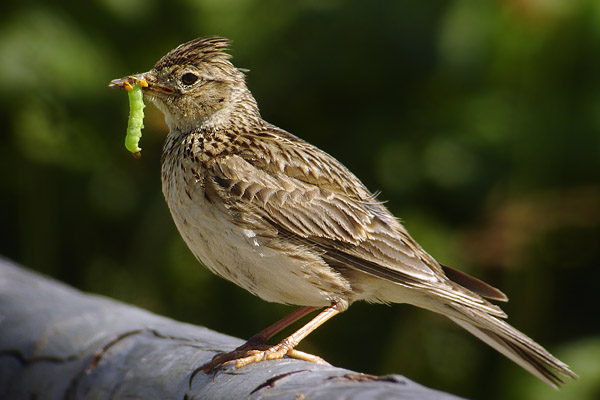
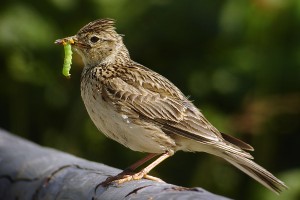
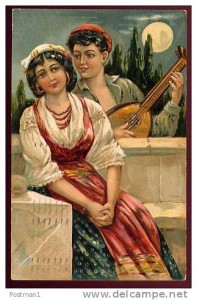
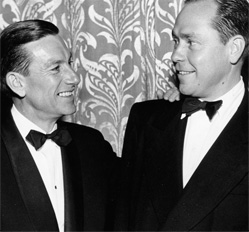

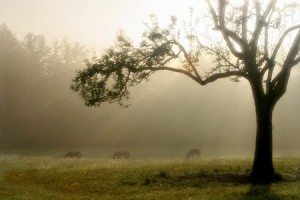
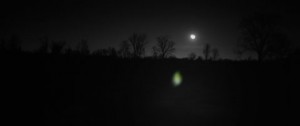
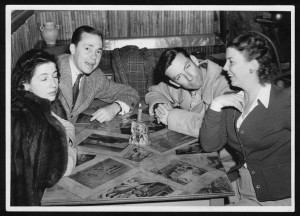
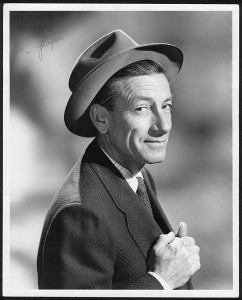

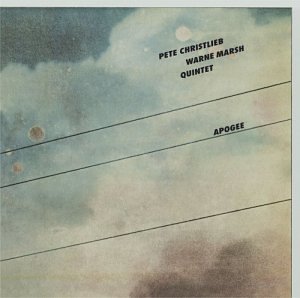

You can hear that the real group’s version was deeply influenced by the singers unlimited.
Indeed! You can real all about TRG’s influences here:
http://www.songfacts.com/blog/writing/modern_a_cappella_with_peder_karlsson_of_the_real_group/
Sweet!
One of my favorite songs of Hoagy and Johnny is Huggin’ and Chalkin’ which is catchy tune and also very funny. https://youtu.be/h_QfAzJP2Zo
We were just trying to play Skylark in my ukulele group the other day. Mainly we were lamenting how complex Hoagy Carmichael gets with his chord structure.
There is a very fine version by Annie Ross (of Lambert, Hendricks and Ross)
Dianne Reeves, HANDS DOWN! What beautiful, clear pitch
Shabbat Shalom
I sang Skylark among friends in a cabaret workshop. It was a rather sad time in my life. Yet, one of the classmates – a wise and irreverent friend – was my “skylark,” my bright muse, my confidant, my inspiration. Each time I performed the song, it was to her, more than to anyone else. Sadly, she has since died. I remember my skylark whenever I hear Mercer and Carmichael’s song. “If you see them anywhere, won’t you lead me there?”
I also enjoy Aretha Franklin’s version of Skylark. It was fun to view the movie clip, but good thing Lauren Bacall was beautiful!
This is one of my favorite songs of Hoagy Carmichael… GREAT!!!